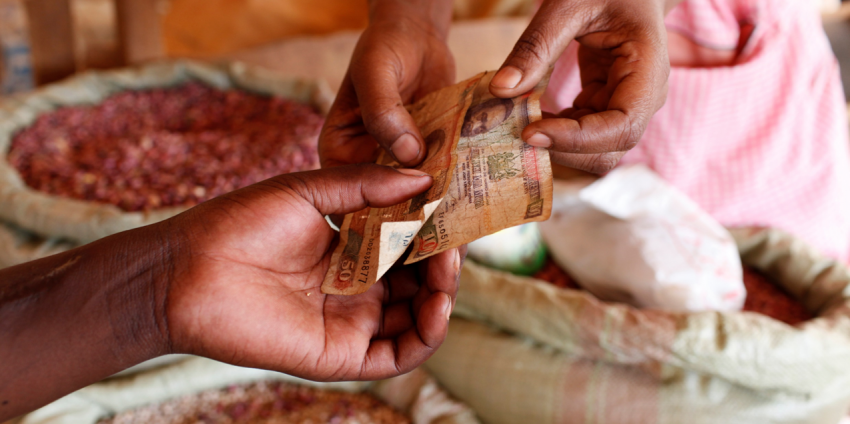The role of the Grameen Crédit Agricole Foundation in responding to the crisis

©Godong
Soukeyna Ndiaye Bâ has been a member of the Foundation's Board of Directors since its inception. Committed to promoting women entrepreneurs for over 20 years, she is also the Executive Director of INAFI (International Network of Alternative Financial Institutions), a global network of organizations supporting microfinance programs. Abdul Hai Khan is a member of the Board of Directors and Managing Director of Grameen Trust. He also serves on the boards of various microfinance and social enterprise organizations in Australia, Bangladesh, China, France, India, Kosovo, Italy, the United States, and Yemen.
1/ As Foundation directors, you are both international experts and microfinance practitioners. Can you share with us your analysis of the crisis, particularly regarding the areas you know well?
Soukeyna Ndiaye Bâ: In Africa, the death toll today stands at nearly 100,000 and more than 3.7 million people infected, figures that do not reflect the reality on the continent because there is no mass screening due to a lack of resources. Due to restrictions and border closures to contain the pandemic, the African continent has not escaped the crisis. In this context, small entrepreneurs, farmers, and informal sector actors are obviously directly affected. On the front line: women, in both rural and urban areas, who are very active in the informal sector. In Senegal, for example, 94% of women entrepreneurs operate in the informal sector. In rural areas, in addition to the seriousness of the economic situation, the already alarming health precariousness and difficulty accessing healthcare are likely to worsen.
Abdul Hai Khan: The death toll in Asia is currently estimated at around 417,000, while the number of infections stands at over 26 million. Schools in East Asia and the Pacific have been completely closed for over 25 million children for almost an entire year. Covid-19 has slowed growth in East Asia and the Pacific (EAP) by significantly reducing economic activity, including tourism and trade. Growth in the EAP region, excluding China, is forecast to slow to 1.31t/yr in 2020, down from 4.71t/yr in 2019. Millions of households have been affected by the loss of jobs and income (including remittances), while they still have to cover their basic necessities or service their debts. As a result, the percentage of poor people has increased.
2/ How do microfinance and social entrepreneurship mitigate the effects of the economic crisis?
AHK: By facilitating access to essential services, microfinance institutions and social enterprises strengthen the resilience of low-income populations, particularly small entrepreneurs working in the formal and informal sectors and smallholder farmers. They are therefore essential for protecting the most vulnerable populations, who have been severely affected by the effects of the economic and health crisis during the Covid-19 pandemic. To cope with this pandemic, many microfinance institutions have innovated and strengthened their support for their clients. For example, they have restructured loans to better support the most affected clients and accelerated their digital transformation, introducing or improving cashless transactions via mobile banking channels and creating online branches.
3/ What can we expect in the coming years?
AHK: The extent of the damage caused by the Covid-19 pandemic worldwide is considerable. However, it offers us a unique opportunity to improve, even redefine, our economic structures by building on social and environmental awareness. We should not speak of a “recovery” program, but of a “reconstruction” program. In this comprehensive reconstruction plan, social entrepreneurship can play a vital role, as it can be a lever to transform unemployed people into entrepreneurs. Financial inclusion can help ensure that economic recovery is accompanied by social development.
SB: The world is threatened by recession and food and social crises. Building the "post-Covid" world must therefore also be multisectoral and focused on innovation. We must learn from the problems encountered during this crisis: better assess and anticipate risks, strengthen our socioeconomic models, and rethink our public policies to better protect the most vulnerable populations. Women entrepreneurs will have a key role to play in boosting the economy. Supporting female entrepreneurship will be a lever for strengthening women's empowerment and the development of rural and urban economies. Digital technology will be a major tool for promoting entrepreneurship, modernizing, developing, and innovating.



Leave a Reply
Want to join the discussion?Feel free to contribute!